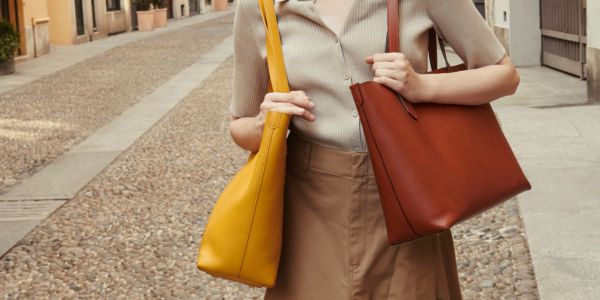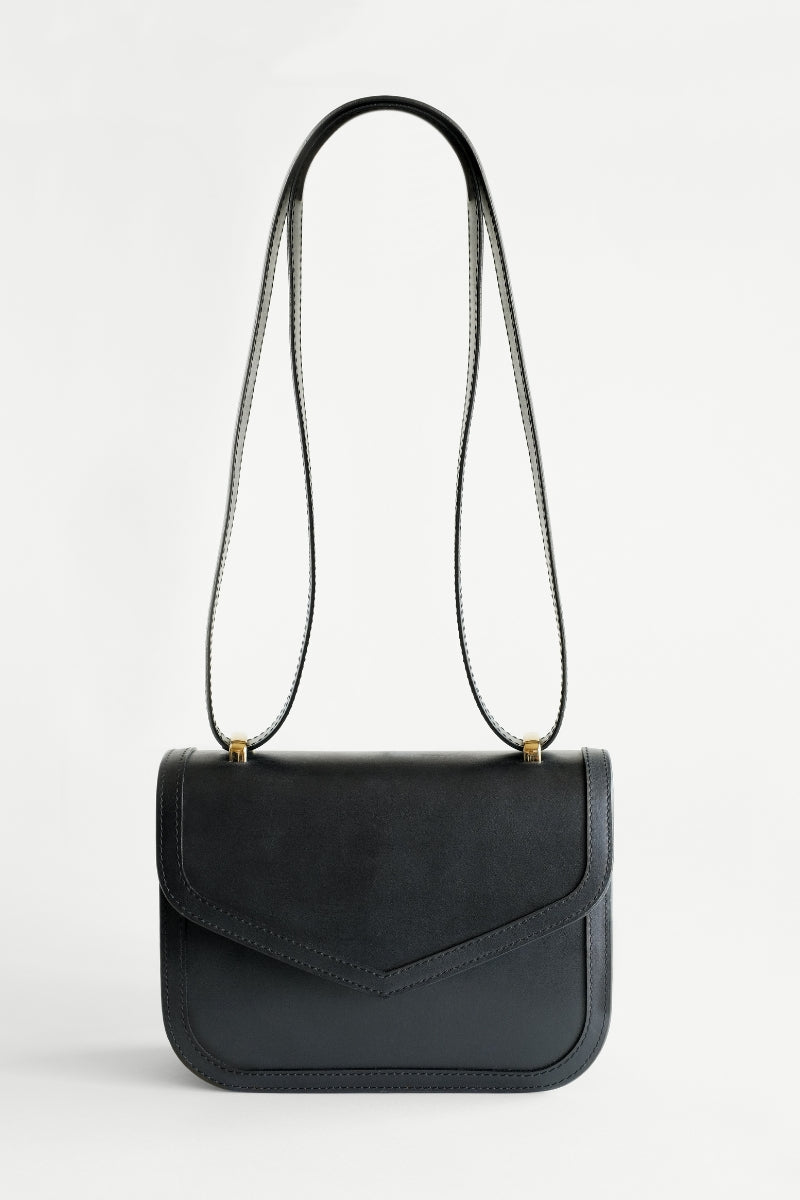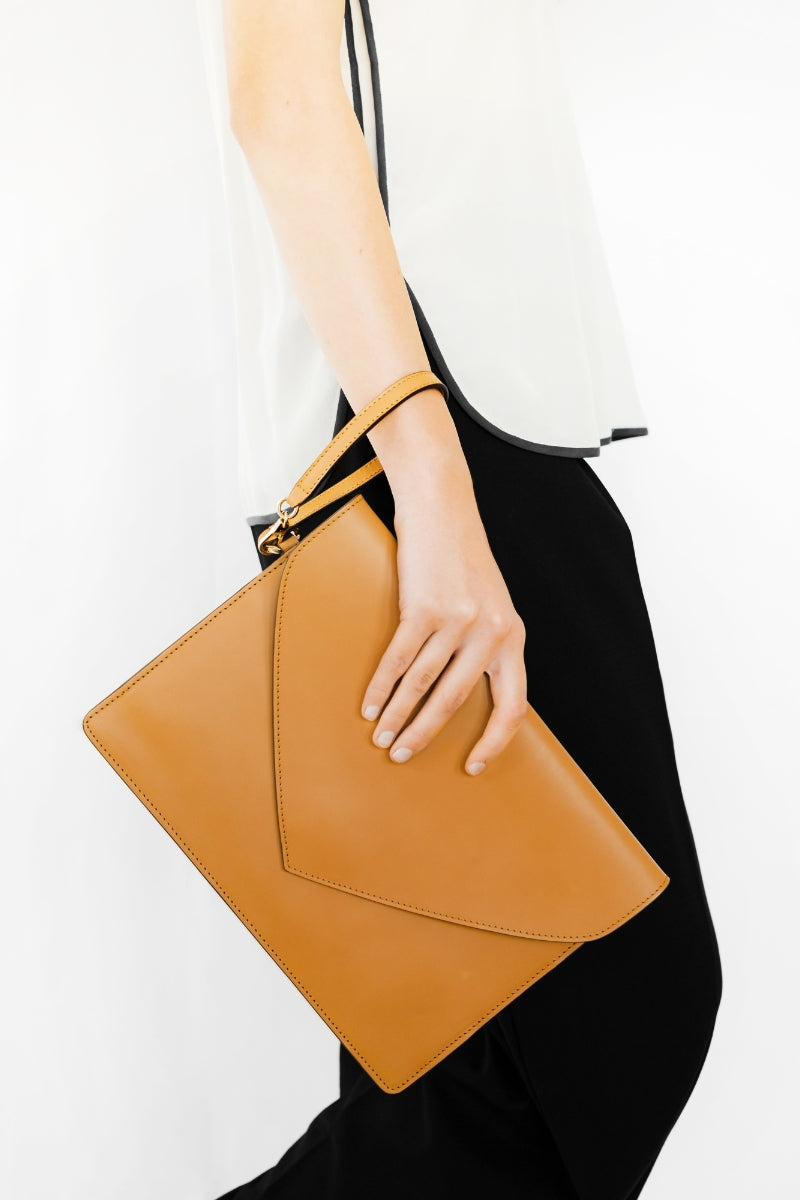MODHER Founder Gianna Caravello Shares the Inspiration Behind Her Sustainable Fashion Brand
Growing up in Italy, MODHER Founder Gianna Caravello was surrounded by timeless beauty. Everything from the buildings to the textiles was built to last for generations. Italian items were old, and in their age, they carried stories and history that made them truly special and unique.
That reverence for timeless beauty stood in stark contrast to the rapid transition to mindless consumerism Gianna saw throughout the world. Products were being created cheaply with low-quality materials, workers were suffering under harsh conditions with low pay, and consumers were purchasing these products at a low cost with little understanding of the environmental and social ramifications.The world of fashion, which Gianna loved growing up, was becoming a clear culprit behind the rampant consumerism she loathed.
When Gianna founded MODHER, she did it with a passion for the beauty and timelessness of Italian design, and an insistence upon a better, more ethical way to create fashion pieces. Now, as a Certified B Corporation, one of Gianna’s proudest accomplishments, MODHER crafts and sells handbags that are consciously designed with the environment in mind.
In this Q&A, Gianna shares her vision for MODHER and her commitment to sustainability within the handbag brand.

Why did you decide to launch MODHER?
I was working as a digital UX designer, and I felt like I needed to create something more physical, more tangible. Fashion was my dream since I was a little girl, and I decided I should try to do something related, but I didn’t have the skills. I bought a sewing machine and decided I could start there.
When I started looking for material in stores or even online, I noticed that there was a lot of synthetic material—for a price point that was not cheap at all. I had no idea what these materials really looked like. I noticed that what many sellers called silk was just polyester. A lot of the material that simulates natural material was called a similar name, but it was synthetic. I couldn’t find natural, sustainable material that I could feel good about using. My research helped me understand that there was a disconnect in fashion between sustainability and price point and the offer to the customer. That’s why I started MODHER.
Did you know from the beginning that these bags would be sustainably made?
No—not from the beginning. When I started to research potential materials, I learned about handbags made of vegan leather and thought that concept was cool. But when I dug deeper, I found out that vegan leather was mostly plastic—it’s synthetic and not sustainable. So I had conversations with a lot of people about material options, taking into consideration the entire production cycle. That’s how I learned that leather actually can be sustainable.
I understand that there are people who think using leather isn’t ethical. But after considering the impact on the environment as well as the workers of various types of material, I feel really good about our material choices. At MODHER we use mostly vegetable-tanned leather, which means no heavy metal is involved in the process. Vegetable-tanned leather in Italy is a very traditional process. Paying tribute to this craftsmanship is also part of the ethical sustainability of the brand.

Why is building ethical and sustainable practices into your business so important to you as the designer and business owner?
This world doesn’t need another traditional fashion brand. There are a lot of handbags out there. There’s no need for another one that makes the same things in the same way. We need some alternatives that can help us take a step back in our consumer behavior and ask ourselves if we need these items, why we need them, how they’re made, and who made them. We need new generations of fashion brands and a new mindset for the consumer product in general—from electronics to fashion and everything else. I want MODHER to be a part of that transition from mindless to mindful consumerism.
How did growing up in Italy influence your personal style, and how has it influenced the style of MODHER?
I grew up in South Italy, where things are very old. There is nothing new—no new things, no new buildings, nothing new—everything is old. That taught me that if you do things in the right way, using the right materials, using the right maintenance, an item could last forever and maintain its beauty.
In terms of fashion design, many of the most iconic pieces come from the 50s and 60s of Italian and European design. That inspires me. When you make products with the right materials, they can be built to last. When you find something that is made to last from the beginning, it will be beautiful forever.

Why is it so important for designers, and for the fashion industry, to make ethical and sustainable practices a priority?
It’s not only a fashion priority, it’s a general business priority. Fashion is an important part of this path toward sustainability because fashion is one of the most important opportunities for self-expression. Fashion tells a lot about culture and a lot about people. That’s why it’s so powerful to move fashion toward a better world and try to fix what is going on in our environment.
Ethical fashion is powerful because everyone can have an impact by making smaller choices, and they also have the opportunity to influence others. This is becoming a very important way to spread better consumer behavior.
MODHER is a certified B Corporation—what does this mean to you and why was it important for you to have this certification?
I’m still so excited every time I talk about B Corp. When I started MODHER, I asked myself how this brand’s sustainability could be proven. In this world, everyone can say they’re “sustainable” because of this or because of that.
As I started replying to the B Corp Certification questions, I realized how important it was to take into consideration all of the different aspects of sustainability. It’s not just about making the right product in the right way. It's also about looking at how you organize your company, how you treat your employees, how you set up your policies, where you buy your supplies, how you talk with your suppliers. Everything is important because everything brings the right mindset into the company.
Through the B Corp Certification process, I realized that I was doing very well in terms of my production and material. I also realized that I had a lot of room to grow in terms of being more engaging within my community. I learned how difficult it will be to scale up the business. As the company becomes bigger, keeping track of our supply chain will be really important. Keeping this in mind from the beginning helps to set us on the best path.






